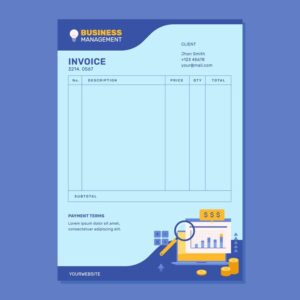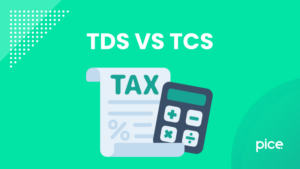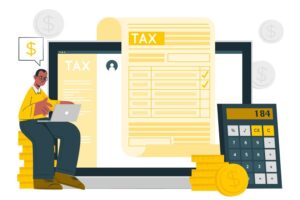GST Composition scheme for Bakery, Goods and Services Tax – GST
- 11 Aug 24
- 12 mins
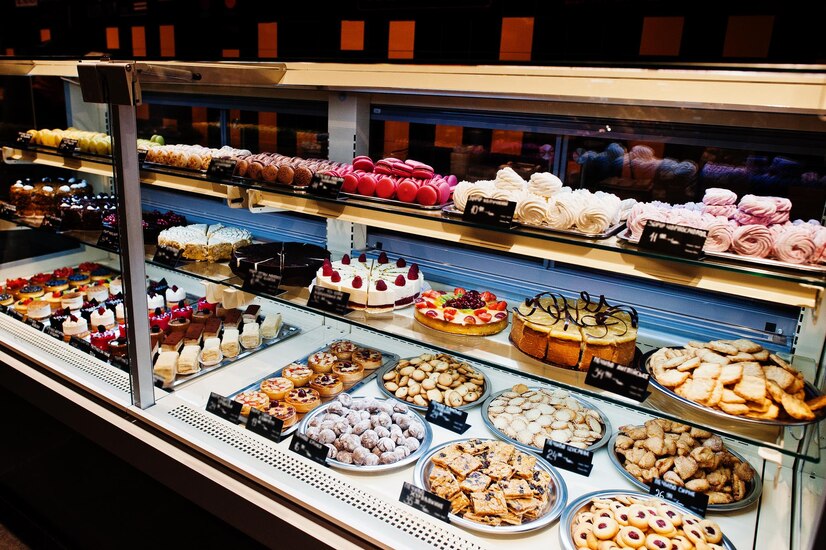
GST Composition scheme for Bakery, Goods and Services Tax – GST
Key Takeaway
- Bakeries offer a unique blend of culinary art and tradition, catering to everyday needs and special occasions with a wide range of products.
- GST registration for bakeries not only ensures compliance but also provides strategic benefits like input tax credits and increased credibility.
- The GST Composition Scheme, with a tax rate for eligible bakeries, simplifies tax administration and reduces the compliance burden for small to medium-sized operations.
- Starting a bakery business in India requires careful planning, from market research and conceptualization to legal compliance and operational excellence.
- Adhering to GST regulations and leveraging schemes like the Composition Scheme are crucial for the financial management and sustainability of a bakery business.
Introduction to Bakery Business
The aroma of freshly baked bread, the sight of flaky pastries, and the allure of indulgent cakes define the essence of a bakery business. This venture is more than just a food establishment; it's a place where culinary art meets tradition and innovation. Bakeries serve a wide array of products, from bread and biscuits to custom cakes and gourmet pastries, catering to everyday consumers as well as special occasions.
In the culinary landscape, bakery businesses hold a unique place. They are deeply woven into the fabric of society, serving as essential spots for daily provisions, social gatherings, and celebration preparations. The appeal of a bakery lies not just in its products but in the experience it offers—be it the comfort of a familiar loaf of bread or the excitement of trying a new, exotic pastry.
The bakery sector has shown remarkable resilience and adaptability, thriving amid changing consumer preferences and technological advancements. From artisanal bakeries emphasizing traditional, handmade techniques to modern cafes blending coffee culture with baked goods, the business model can vary widely, attracting a diverse clientele.
Understanding GST Registration for Bakeries
With the implementation of the Goods and Services Tax (GST) in India, the tax landscape for businesses, including bakeries, underwent a significant transformation. GST was introduced to consolidate multiple indirect taxes into a single tax, aiming to create a more streamlined and efficient taxation system.

For bakeries, GST registration is not just a legal requirement but a step towards greater transparency and simplified tax handling. The process of GST registration integrates the bakery into the formal economy, making it eligible for various benefits, such as input tax credits, which can significantly reduce costs.
Criteria for GST Registration:
- Mandatory Registration: Bakeries with an annual turnover exceeding Rs. 40 lakhs (Rs. 20 lakhs for special category states) are required to register for GST mandatorily. This threshold varies, so it's important to stay updated with the latest guidelines.
- Voluntary Registration: Bakeries with a turnover below the mandatory threshold may opt for voluntary GST registration. This option can offer strategic advantages, such as input tax credit claims, which can be particularly beneficial for businesses in their growth phase.
Process of GST Registration:
- Documentation: The first step involves gathering all necessary documents, including PAN, Aadhaar, business registration or incorporation certificate, bank account details, and address proof of the business premises.
- Application: The registration process can be initiated online through the GST portal. Here, you'll fill in details and upload the required documents.
- Verification: Once submitted, the application undergoes verification by the authorities. If everything is in order, a GSTIN (GST Identification Number) is issued.
- Compliance: Post-registration, bakeries need to comply with GST regulations, which include filing regular returns, paying taxes on time, and maintaining all transaction records.
Understanding and complying with GST regulations is crucial for the seamless operation of a bakery business. It not only ensures legal compliance but also positions the bakery for sustainable growth by enabling access to a broader market and financial benefits.
Advantages of GST Registration for Bakeries
The Goods and Services Tax (GST) regime, by unifying multiple indirect taxes into one, simplifies the tax structure for businesses across India, including bakeries. The adoption of GST registration offers several advantages that can significantly benefit bakery businesses:
- Input Tax Credit: One of the most significant benefits of GST registration is the ability to claim an input tax credit (ITC). This means that bakeries can deduct the tax paid on inputs (like ingredients and packaging materials) from the tax due on sales. This mechanism reduces the overall tax liability, potentially lowering costs and improving profitability.
- Compliance Ease: GST has replaced multiple indirect taxes with a single tax, simplifying the tax filing process. This unified system reduces the complexity and burden of compliance, saving time and resources that can be better utilized in business growth and development.
- Increased Credibility: Registered businesses are perceived as more credible and reliable by customers, suppliers, and financial institutions. GST registration enhances the bakery's reputation, facilitating smoother transactions, and potentially leading to increased business opportunities.
- Access to Online Platforms: With a GSTIN, bakeries can sell through online marketplaces and platforms, reaching a wider audience. This digital presence is increasingly important in today's market, where consumers frequently shop online for convenience.
- Eligibility for Government Tenders: GST registration is often a prerequisite for applying to government tenders. Registered bakeries can thus access new business opportunities that would otherwise be out of reach.
- Legal Authorization: Holding a GSTIN authorizes the bakery to collect tax from customers and pass on the credit of the taxes paid on the goods or services supplied to purchasers or recipients. This legal backing reinforces the business's standing in the market.
Decoding the GST Composition Scheme
The GST Composition Scheme is a simplified tax regime for small taxpayers, designed to reduce their burden of compliance and facilitate easier tax payments. Here's a closer look at how it applies to bakery businesses:
- Eligibility: The scheme is available to businesses with an annual turnover below a specified threshold, which currently stands at Rs. 1.5 crores for most states. This makes it an attractive option for small to medium-sized bakeries.
- Simplified Tax Payments: Under the Composition Scheme, eligible bakeries can pay tax at a fixed, reduced rate on their turnover. This rate is considerably lower than the regular GST rates, easing the financial load on the business.
- Reduced Compliance Requirements: Businesses opting for this scheme benefit from simpler compliance procedures. They are required to file quarterly returns instead of the monthly returns mandated for regular taxpayers, significantly reducing administrative efforts and costs.
- Restrictions: While the Composition Scheme offers various advantages, it comes with certain limitations. For instance, taxpayers cannot claim input tax credit, and they are not allowed to make interstate supplies. These restrictions necessitate a careful assessment of the scheme's suitability for a particular bakery's business model.
- Procedure to Opt for the Scheme: Bakeries can opt for the Composition Scheme at the time of GST registration or by filing a specific application on the GST portal. It's important to periodically review eligibility and ensure compliance with the scheme's conditions.
The GST Composition Scheme represents a pathway for bakery businesses to simplify their tax dealings, reduce liabilities, and focus more on their operational and strategic initiatives. However, the decision to opt for this scheme should be made after a thorough analysis of its implications on the bakery's finances, operations, and long-term growth prospects.
Composition Scheme Tax Rates for Bakeries
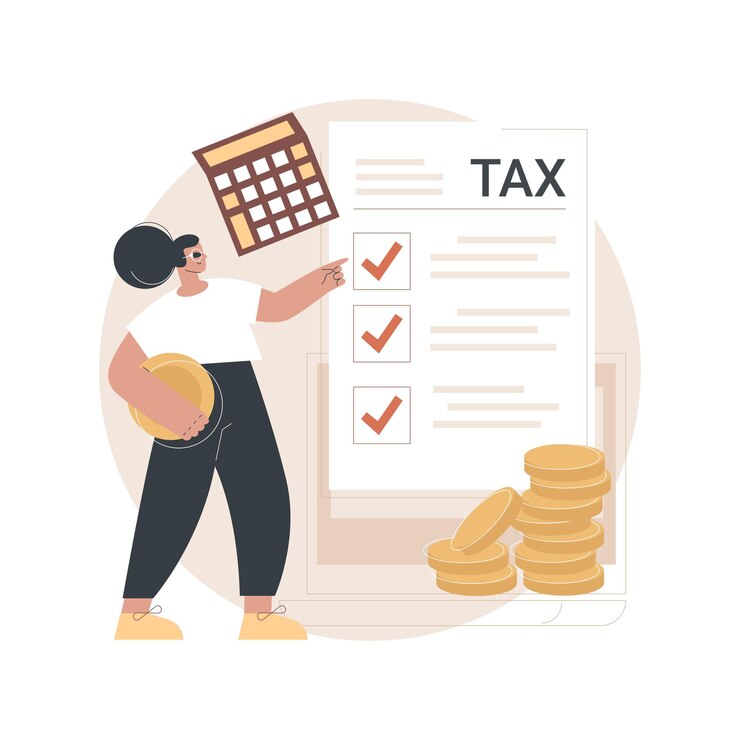
The GST Composition Scheme presents an appealing tax structure for small to medium-sized bakery operations, offering a simplified and lower rate of tax compared to the standard GST rates. This scheme is designed to reduce the compliance burden and make tax administration easier and more cost-effective for businesses.
Key Points on Tax Rates:
- Tax Rate for Bakeries: Bakeries opting for the GST Composition Scheme can benefit from a nominal tax rate of 1% of their turnover. This consolidated rate includes both CGST and SGST/UTGST, providing a substantial relief from the higher rates applicable under the regular GST system.
- Eligibility: The scheme is available to bakeries with an annual turnover of up to Rs. 1.5 crores, allowing them to enjoy the benefits of this reduced rate of tax.
Understanding and leveraging the Composition Scheme's rate of tax can significantly aid in managing the financial aspects of running a bakery, especially for smaller establishments seeking to optimize their operational costs.
Launching a Bakery Business in India: A Step-by-Step Guide
Embarking on the journey of opening a bakery in India involves meticulous planning and adherence to regulatory guidelines. Here’s a comprehensive guide to get you started:
- Conceptualize Your Bakery:
- Define your concept, theme, and bakery product range. Consider specializing in certain types of baked goods, such as organic, gluten-free, or traditional Indian bakery items.
- Market Research:
- Conduct thorough research to understand your target market, competition, and customer preferences. This will help in tailoring your offerings and marketing strategies effectively.
- Business Plan:
- Draft a detailed business plan covering aspects like budgeting, marketing, operations, and growth strategies. Include financial projections and a break-even analysis.
- Legal and Regulatory Compliance:
- Register your business as per Indian laws (Sole Proprietorship, Partnership, LLP, or Private Limited Company).
- Obtain necessary permits and licenses, including the FSSAI license for food safety, GST registration, and local municipal permissions.
- Location and Infrastructure:
- Choose a strategic location considering visibility, accessibility, and target audience. Design your bakery layout for efficient operations and customer experience.
- Equipment and Suppliers:
- Invest in high-quality bakery equipment. Establish relationships with reliable suppliers for ingredients and packaging needs.
- Hiring:
- Recruit a team of skilled bakers, chefs, and support staff. Ensure they align with your bakery’s standards and customer service ethos.
- Marketing and Branding:
- Develop a strong branding strategy, including a catchy name, logo, and theme. Utilize social media, online marketing, and community engagement to build your presence.
- Grand Opening:
- Plan a soft launch or a grand opening event to create buzz in the community. Offer samples, discounts, or special promotions to attract your first customers.
- Operational Excellence:
- Focus on quality control, customer service, and innovative product offerings to differentiate your bakery. Implement feedback mechanisms to continually improve.
- Financial Management:
- Keep accurate records of income, expenses, and taxes. Stay compliant with GST filings and other regulatory requirements to ensure smooth operations.
- Growth and Expansion:
- Analyze performance, customer feedback, and market trends to identify opportunities for growth and expansion. Consider diversifying your product range or opening additional locations based on demand.
Starting a bakery business in India is a promising venture with the potential for substantial rewards. By following these steps and maintaining a focus on quality, customer satisfaction, and regulatory compliance, you can establish a successful bakery that stands out in the competitive market.
💡However, the beginning phase of any business can be challenging in terms of working capital and finding the product market fit. If you are facing working capital issues and want to pay your vendors through credit card, download Pice Business App. Pice is a one stop app for all business payments.
 By
By 








